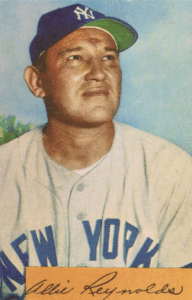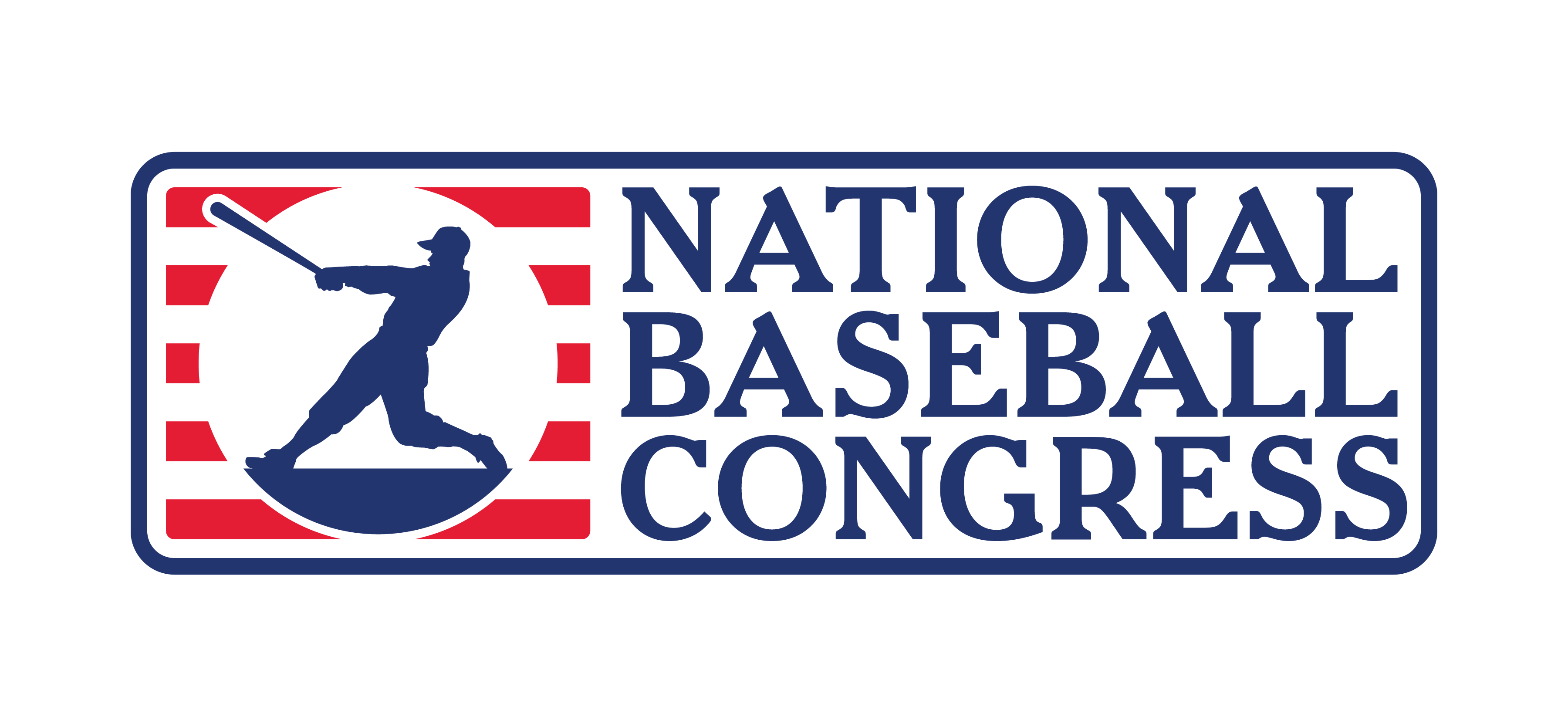NBC Hall of Famer Allie Reynolds
Allie Reynolds
February 10, 1917-December 26, 1994
Leyden Miners 1937
Part Creek Indian, Allie “Superchief” Reynolds was born in Bethany, Oklahoma in 1917. His father was a Nazarene preacher and required that his family strictly adhere to the guidelines of their religion, which, when it came to participating in sports, meant that he couldn’t play on Sundays. This conflicted with many opportunities to play baseball, so even though Reynolds was very athletic, competing on the high school track team and being named All-State in football in 1934, he did not play on an organized baseball team until he was in college. He pitched for his fraternity’s team in 1936 at Oklahoma A&M (now Oklahoma State University) and then joined the university’s team in 1937. He was quickly considered to be an “ace fireball pitcher”, while continuing to play halfback for the football team, and Reynolds was also a standout for the university’s track team, which had given him a scholarship of $20 a month to attend A&M in 1935.
In the summer of 1937, he pitched for the Leyden Miners of the Denver Lakeside League and helped lead the team to win the Colorado Semipro tournament, pitching in the championship game and allowing 7 hits in a 15-2 victory. Following a few more games, his team arrived in Wichita only to be swept in its two appearances under the double elimination format. Reynolds, in his only career appearance at the NBC World Series, started in the first game on August 15, allowing 8 runs in 6 innings and striking out 1 in a 9-8 loss.

Reynolds continued to excel in all sports at A&M and was named captain of the baseball team in his senior season, where he pitched a no-hitter in his final collegiate start, striking out a school record 18 against Southwestern Oklahoma State Teachers College. His baseball coach encouraged him to pursue baseball, and Reynolds listened and signed a contract with the Cleveland Indians just a few days after the no-hitter. After a few years in the minors, Reynolds made his major league debut in late 1942 and slowly established himself as one of the dominant pitchers of the era, especially after being traded to the New York Yankees following the 1946 season. While with New York, he threw 2 no-hitters, was a 5-time All-Star, finishing in the top 3 in MVP voting twice, and led all of the majors with a 2.06 ERA in 1952. He also compiled a 7-2 record with a 2.79 ERA in 15 World Series appearances as well as batted .308 in the Fall Classic. He retired after 1954 with career totals of 183-107, 3.30 ERA.
Less than a year after retirement, Reynolds, along with Satchel Paige, was honored by the NBC as the inaugural Graduate of the Year. This award recognizes former NBC participants that have made a notable impact in the major leagues, and has been given annually since 1975.
Reynolds continued to stay involved with baseball after his playing days were over, while also running an oil company in Oklahoma. In 1969, he became President of the newly formed Triple-A American Association and returned to Wichita a number of times as the city pursued a return to professional baseball. Reynolds spoke highly of NBC founder Ray Dumont in his and the city’s efforts to acquire a team, saying, “Ray is highly thought of in the professional ranks as well as all other sections of the sport. He has done an outstanding job. He has proved Wichita and that area of Kansas can support a fine baseball program.” That praise turned into reality when the Wichita Aeros took the field in 1970. On Opening Night in 1971, Reynolds was honored once again by the NBC being one of 5 pitchers named to the All-Time NBC Team. The Yankees would also show their appreciation of his talents by honoring him with a plaque in their Monument Park in 1989.
After his playing days were over, he still stayed involved with baseball while running an oil company in Oklahoma. In 1969, he became President of the newly formed Triple-A American Association and returned to Wichita a number of times as the city pursued a return to professional baseball. Reynolds spoke highly of NBC founder Ray Dumont in his and the city’s efforts to acquire a team, saying, “Ray is highly thought of in the professional ranks as well as all other sections of the sport. He has done an outstanding job. He has proved Wichita and that area of Kansas can support a fine baseball program.” That praise turned into reality when the Wichita Aeros took the field in 1970. In 1971, Reynolds was honored by NBC on Opening Night as part of the All-Time team as one of the 5 pitchers named to that team. He was also honored by the Yankees with a plaque in their Monument Park in 1989.
He worked with youth sports in Oklahoma for much of his later years and also served as President of the National Hall of Fame for Famous American Indians in his efforts to promote and preserve his heritage. He was named to the Oklahoma Hall of Fame in 1991, the same year he was inducted into the NBC Hall of Fame. Reynolds passed away in 1994.

